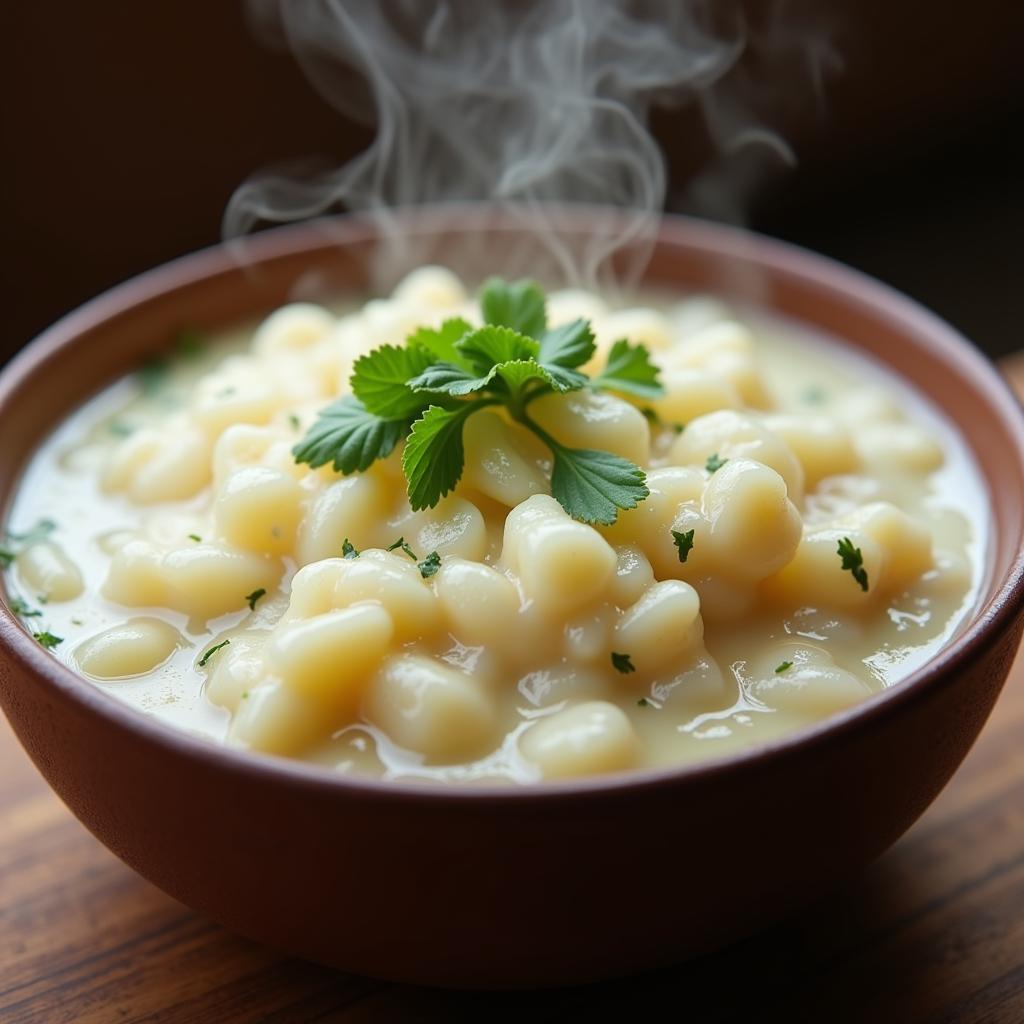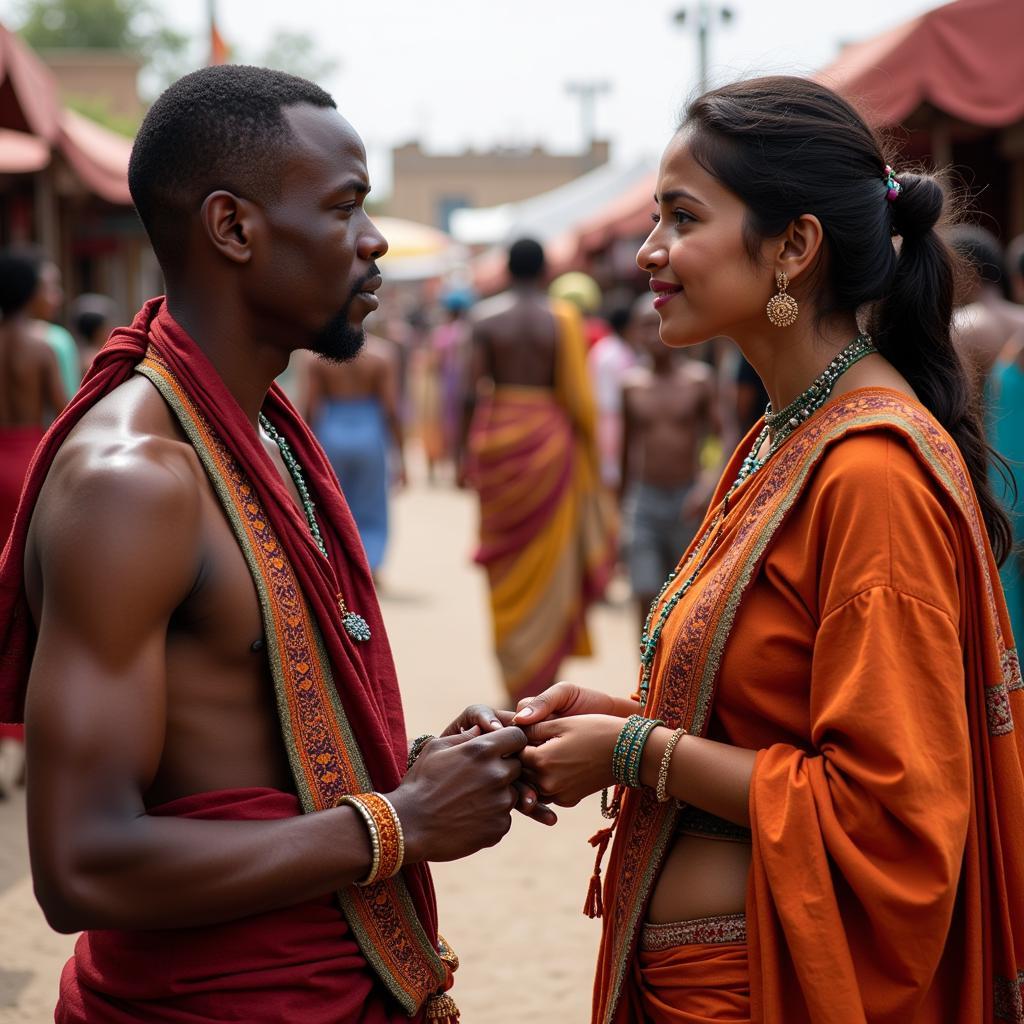Exploring the Significance of the African God Idol
African God Idols represent a powerful connection to the spiritual world and ancestral heritage. These intricate figures aren’t mere decorations; they embody profound beliefs and traditions passed down through generations across the diverse cultures of the African continent. From small wooden carvings to elaborate bronze sculptures, these idols serve as focal points for worship, rituals, and communal connection. Let’s delve into the captivating world of African god idols and uncover their rich symbolism and cultural significance. african idol
Unveiling the Power and Symbolism of African God Idols
African god idols are more than just artistic representations. They embody the essence of deities, ancestors, and spiritual forces revered by various African communities. These idols act as intermediaries between the physical and spiritual realms, allowing individuals to connect with the divine. The materials used, the style of carving, and the specific iconography all contribute to the idol’s power and meaning. For instance, some idols might incorporate materials like wood, metal, or clay, each carrying symbolic weight. Others may be adorned with beads, shells, or feathers, further enhancing their spiritual potency.
What makes African god idols so intriguing is their diversity. Each tribe or ethnic group may have its own unique pantheon of gods and goddesses, resulting in a wide array of idol forms. These variations reflect the rich tapestry of beliefs and practices across the African continent. From the powerful Yoruba orisha to the protective spirits of the Kongo people, African god idols offer a glimpse into a world of complex spiritualities.
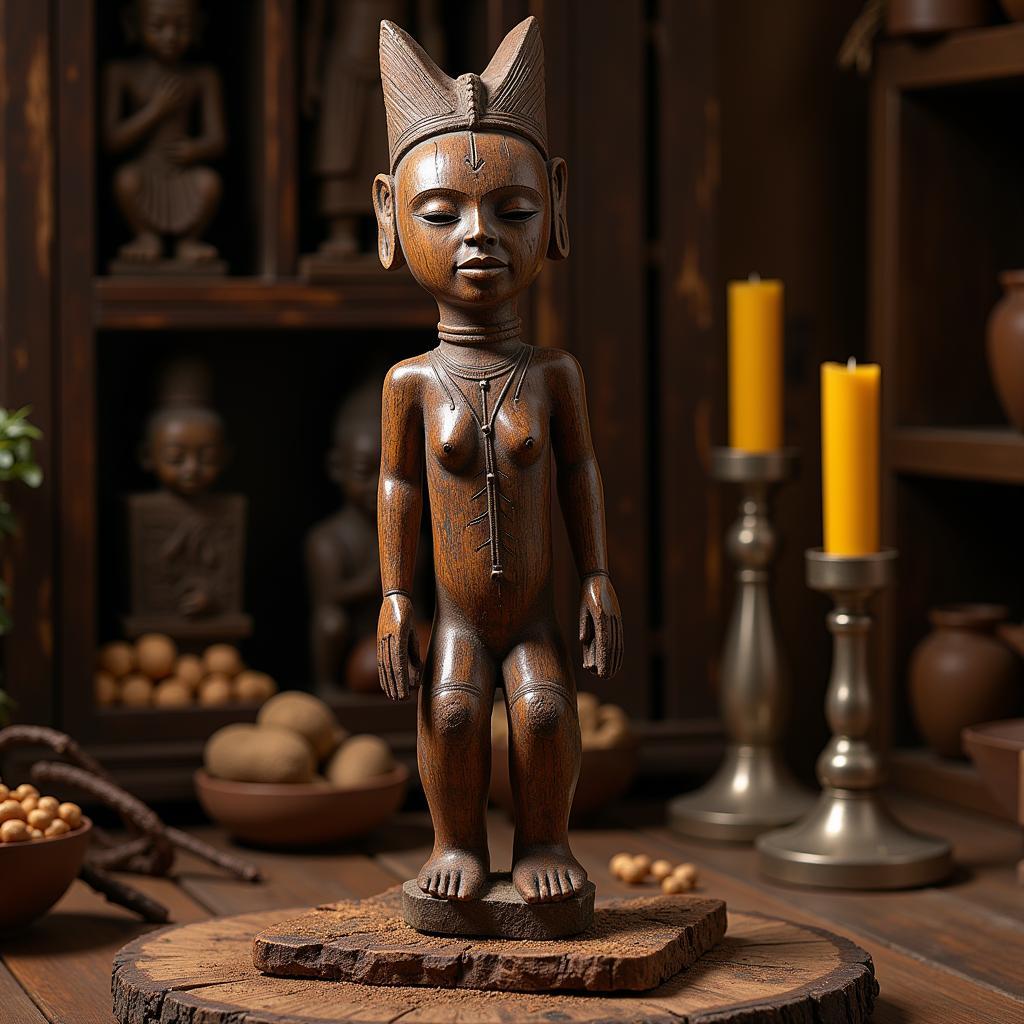 Yoruba Orisha Idol Wooden Sculpture
Yoruba Orisha Idol Wooden Sculpture
African God Idols: A Window into Diverse Cultures
Examining African god idols opens a window into the diverse cultures of the continent. These idols serve as tangible expressions of a community’s history, values, and spiritual beliefs. They are not merely static objects but active participants in ceremonies, rituals, and daily life. For example, some communities may use idols in healing ceremonies, while others might incorporate them into agricultural rituals to ensure a bountiful harvest.
The creation of these idols is often a sacred process, undertaken by skilled artisans who possess both artistic talent and spiritual knowledge. They are seen as conduits for the divine, imbuing the idols with power and meaning. These artisans often inherit their skills and knowledge from previous generations, ensuring the continuity of these important traditions.
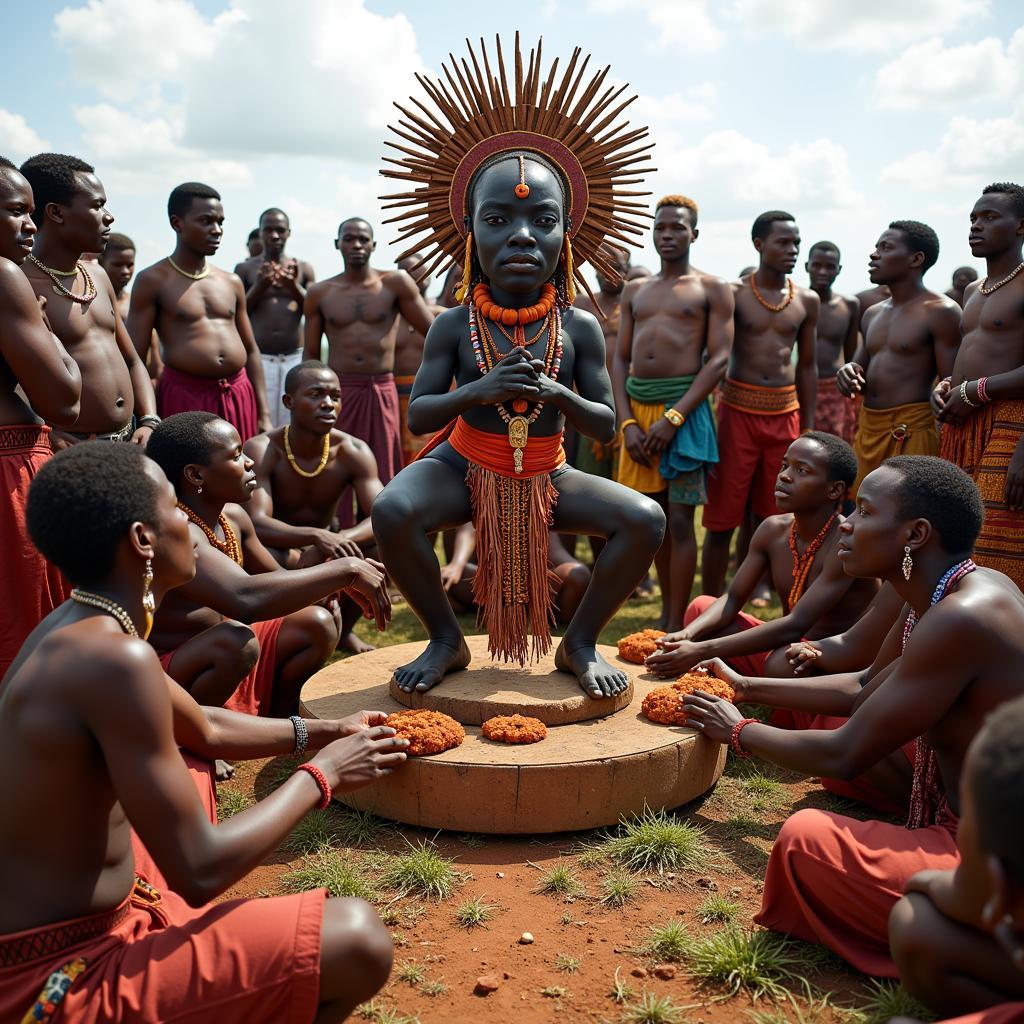 African God Idol Ritual Ceremony
African God Idol Ritual Ceremony
What is the Purpose of an African God Idol?
An African god idol serves as a tangible representation of a deity, ancestor, or spirit. It acts as a focal point for worship, allowing individuals and communities to connect with the spiritual realm. These idols play crucial roles in rituals, ceremonies, and daily life, providing a link between the physical and the supernatural.
How Can I Learn More About Specific African Gods and Their Idols?
You can explore more about African gods and their representation in idols through resources like museums, scholarly articles, and reputable online sources. Focus on specific regions or ethnic groups to gain a deeper understanding of their unique spiritual traditions. You might also consider african god in american gods for a contemporary perspective.
Preserving the Legacy of African God Idols
The preservation of African god idols is essential for maintaining cultural heritage and understanding the rich history of the continent. Many museums and cultural institutions are dedicated to preserving and showcasing these important artifacts. However, it’s crucial to approach the study and appreciation of African god idols with respect and sensitivity, acknowledging their sacred nature and the cultural context from which they originate. Consider researching african god idol made with wood for further insights into the craftsmanship and symbolism involved.
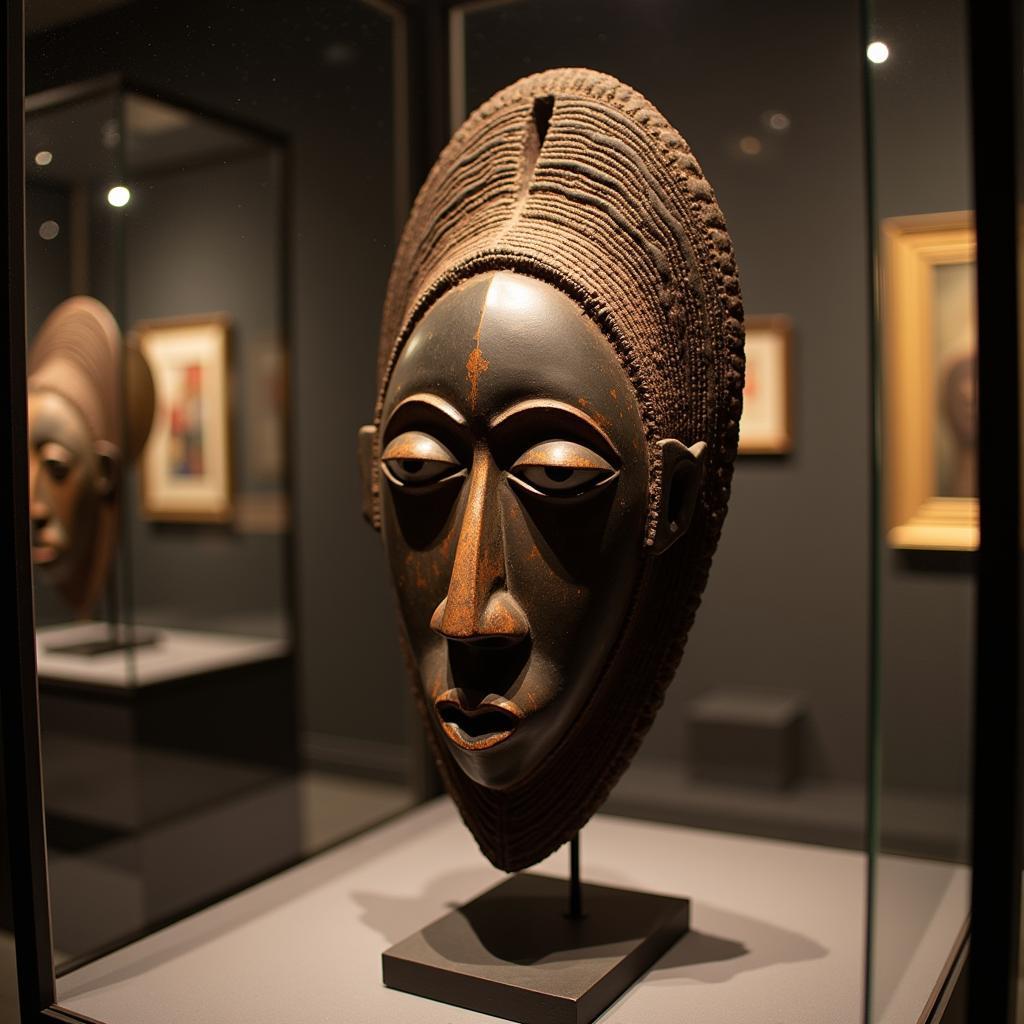 African Mask Tribal Art Museum Display
African Mask Tribal Art Museum Display
Dr. Abena Kwesi, a renowned anthropologist specializing in West African cultures, explains, “African god idols are not simply objects; they are living embodiments of cultural memory and spiritual power.” Another expert, Babatunde Olatunji, a respected Yoruba priest, adds, “These idols are the tangible connection between our ancestors and ourselves, guiding us through life’s journey.” Finally, Professor Fatima Mbaye, a scholar of African art history, states, “The intricate details and symbolism found in these idols speak volumes about the rich artistic traditions and profound spiritual beliefs of African communities.”
In conclusion, the African god idol holds a powerful significance within African cultures, acting as a bridge between the spiritual and physical worlds. These idols represent the rich tapestry of beliefs, traditions, and artistic expressions found across the continent. Understanding the symbolism and cultural context surrounding these artifacts is crucial for appreciating their profound meaning and preserving their legacy for future generations.
FAQ
- What materials are commonly used to create African god idols?
- How are African god idols used in religious ceremonies?
- What is the significance of different animal representations in African god idols?
- How has the perception of African god idols changed over time?
- Where can I see authentic African god idols?
- Are there ethical considerations when collecting or displaying African god idols?
- How can I learn more about the specific deities represented by different idols?
Need more information? Explore our other articles on related topics!
When you need assistance, please contact us:
Phone Number: +255768904061
Email: [email protected]
Address: Mbarali DC Mawindi, Kangaga, Tanzania.
We have a 24/7 customer service team.
